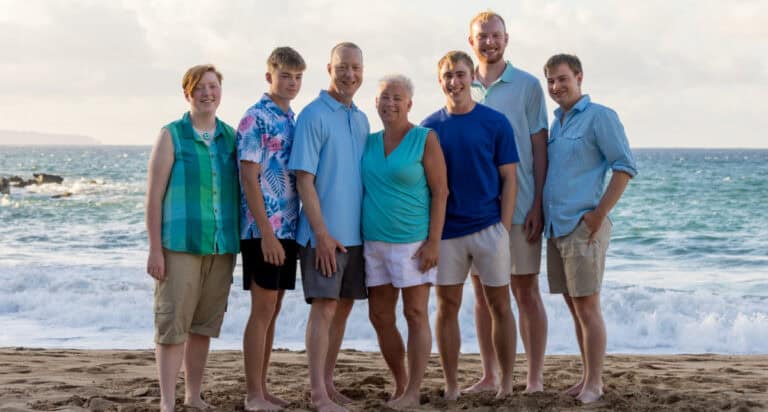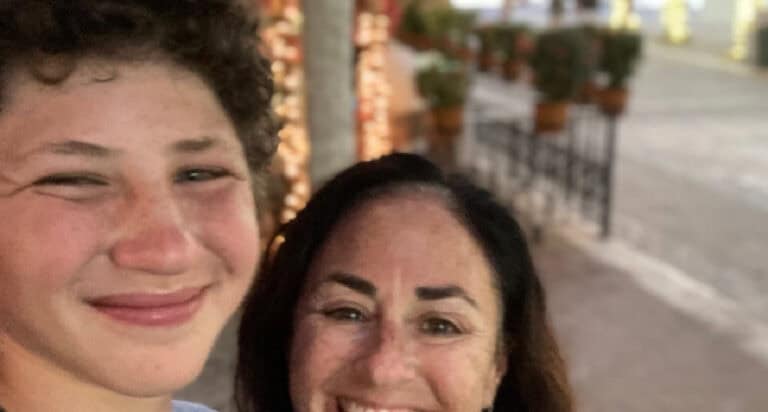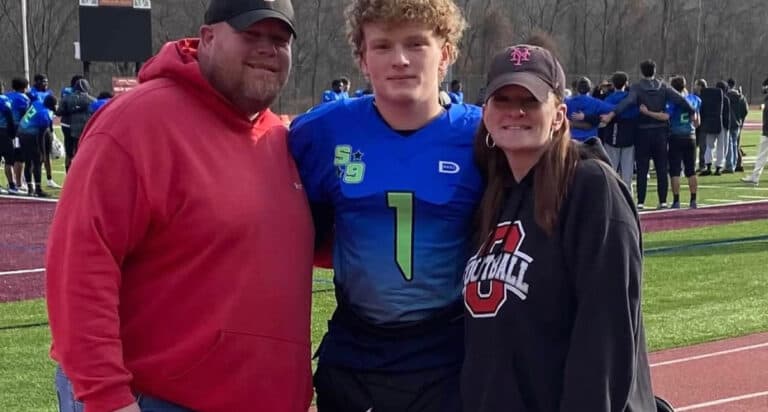The first time I got really, epically, smashingly drunk, I was a freshman in high school. I was hanging out with a bunch of seniors in a hotel room after prom — the seniors from honors chorus had “adopted me” because they thought I was cute. I left that hotel room the next day with new hair color and a bag weighted with wet clothes because I’d gotten so drunk that at some point in the night, the older kids had gotten worried about me and thrown me under a cold shower.

I engaged in risky behavior throughout my teens and twenties
That night taught me nothing. My underdeveloped-prefrontal cortex teen brain thought it was fun. I thought it was cool to be accepted by the older kids, and it didn’t occur to me that I could have gotten alcohol poisoning or that any one of the ten-or-so kids present who were perfect strangers to me might have assaulted me while I was passed out. It was only luck that they were all basically good kids.
Throughout my teen years and into my early twenties, I continued engaging in this kind of risky conduct. I snuck out, lied to my parents, smoked weed and drank, behaved promiscuously, and in general, was enamored with self-destructive behavior.
But, to me, I wasn’t “destructing” anything. I had perfect grades and was in AP classes, Honor Society, youth orchestra, cheerleading, and track and field. I relished presenting a squeaky-clean outward image while inwardly hoarding the sordid details of my wild, outside-of-school life. I loved that I could apparently balance the two.
Imagining either my teen son or my tween daughter living this kind of double life absolutely terrifies me. My son is 13 and has begun asking questions about what kind of teenager I was. I’ve been leery of giving him too many details because I’m afraid it will lead him to be curious to try some of the dangerous behaviors I engaged in. After all, I turned out just fine, didn’t I? So why wouldn’t he?
Tween and teen minds are still immature, ruled by hormones and impulses and the desire to feel and experience. I can offer context to my kids—explain the nuance and background and explanations for my past behavior, but will they absorb it? Or would their main takeaway be: You can do these things, but just be sure to keep your grades up, and you’ll be fine because that’s what mom did.
I was lucky that nothing bad happened to me
Because, the reality is, I was lucky. I was lucky many, many times over. I was lucky never to become addicted to any of the substances I tried. I was lucky I didn’t contract a sexually transmitted disease. I was lucky I never got badly hurt as a result of being careless about where and with whom I surrendered control of my faculties. Well…I did get hurt, just not so badly that the course of my life was drastically altered. I don’t want my kids to experience those hurts. I don’t want dumb luck to be their safety net.
In college I witnessed friends drop out of school, become addicted to coke or ecstasy, get arrested, become pregnant and either have the baby and disappear from our lives or suffer the horrific trauma of terminating a pregnancy. Some of them came from tough family situations, but some were simply the right combination of careless and unlucky, and that was enough to permanently affect their life course.
How much am I going to tell my teens?
So how much do I tell my kids? One thing I know is that my kids can’t tell me, You don’t get it. You don’t understand. I do understand. I know what it feels like to want to experience an altered state of consciousness. I know what it feels like to want to run as fast as you can to the edge of the earth and come to a grinding halt just before plummeting off into the abyss. I empathize with this feeling because I lived it, and I want my kids to know this. Pretending I always made perfect decisions feels like willfully placing misunderstanding between myself and my kids.
And yet some experts say we shouldn’t tell our kids about our wild pasts. They say doing so may imply permission. They say it sends the very message I fear: Mom behaved this way and she turned out fine, so I can too. This is a logical assumption, and some studies bear it out. I have no intention of unloading my entire history onto either one of my kids the first time they ask a question. I also won’t relay my past in a way that romanticizes it. Because, again, the truth is, I was lucky.
But, like with almost everything to do with parenting, there is no one-size-fits-all answer to this question. The conversations we have with our kids about our past are just that —conversations. The larger picture, the more compelling lessons we imprint on our kids’ developing psyches, will come from the world in which those conversations take place.
I grew up in a world where adults drank and smoked pot and the men spoke of women as if they were products to be consumed. My father’s main cautions were “Boys only want one thing” and “Whatever drugs you try in your life, just don’t do coke.”
But then, some of my friends’ parents were as straight-laced as could be (or at least presented as such), and yet their kids still got into all sorts of mischief. I can remember my friends saying their parents had no idea. And they were right — their parents were utterly clueless with heads in the sand.
So, what role does healthy communication play in this picture? Not long ago, my son asked me about drinking. He wanted to know if I’d ever been drunk. I told him I had. He asked if I’d ever been drunk prior to turning 21. I told him I had. I told him I’d gotten into some dangerous situations that I was lucky hadn’t ended very badly. I told him that though I hope he doesn’t, I understand he might one day engage in underage drinking (he is only 13 and still vehemently denying he would ever do this).
I told him I hope he will take with him some of the lessons I wish I’d absorbed when I was a teen: Never drive after drinking. Never let a friend drive after drinking. Always have a designated driver. Never drink with people you don’t trust. Look out for your friends. Never get so trashed that you’re the jerk everyone’s talking about the next day.
And I tell him that, no matter what, he can call me. Any time of night, no questions asked, call me, and I will come get him and any of his friends, and I won’t be mad.
I’m not convinced there is any right answer here, but I know I can’t pretend I lack these experiences. I can’t fake being an angel and I can’t bury my head in the sand. All I can do is provide the safest environment possible for communication and trust, and then, when my kid wants to communicate, actually do that, with as much honesty as feels appropriate at that moment.
You Might Also Want to Read:









